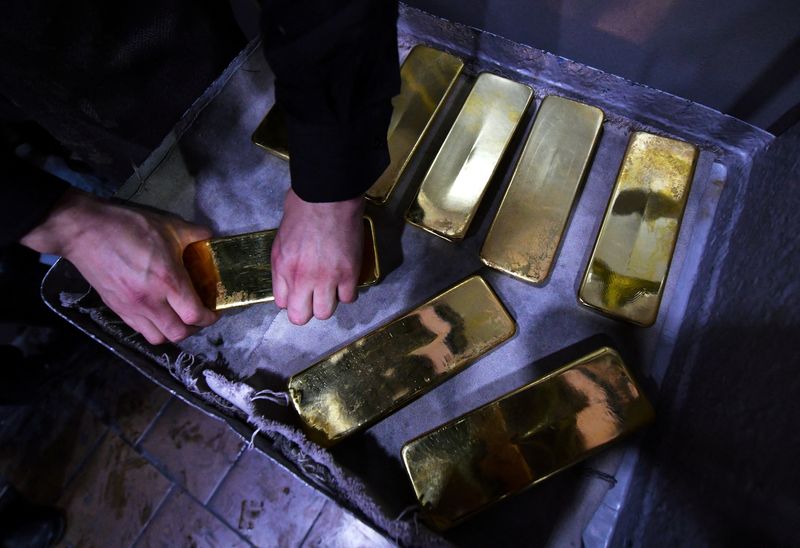(Reuters) -The Russian central bank said it will suspend the buying of gold from banks from Tuesday to meet increased demand for the precious metal from households, its latest attempt to weather the storm on Russian markets in the face of Western sanctions.
“Currently, households’ demand for buying physical gold in bars has increased, driven, in particular, by the abolition of value-added tax on these operations,” the central bank said in a statement.
The central bank raised the key rate to 20% from 9.5% on Feb. 28 as the rouble crashed to record lows and people rushed to withdraw money from banks after the West imposed unprecedented sanctions against Russia for what the Kremlin calls a “special operation” to disarm Ukraine.
The central bank, which will next meet on rates on Friday, has also been holding daily repo auctions as lending institutions scramble to manage their liquidity.
The bank said it would suspend its gold purchases from banks from March 15, without saying how long the change would last.
Sanctions have cut Russia off from key parts of global financial markets and have frozen nearly half of the country’s $640 billion gold and foreign exchange reserves, triggering the worst economic crisis since the 1991 fall of the Soviet Union.
Analysts from VTB Bank said the central bank’s decision looked logical, given the loss of access to $300 billion of its reserves meant the share of gold in available reserves had risen to 40% from 21%.
“With the goal of diversifying the central bank’s reserves, at the moment there is no sense in building up reserves in gold,” VTB analysts said.
They added that the banking sector’s structural liquidity deficit had narrowed to less than 4 trillion roubles ($36 billion) by the start of this week from a record 7 trillion roubles, meaning the acute phase of liquidity deficit has passed.
In this situation, it no longer made sense for the central bank to buy gold from banks to maintain liquidity, VTB said.
BCS analysts said citizens buying precious metals would help reduce the amount of cash flooding the economy, also helping banks’ liquidity.
($1 = 111.0170 roubles)
(Reporting by Reuters; Editing by Emelia Sithole-Matarise)




















